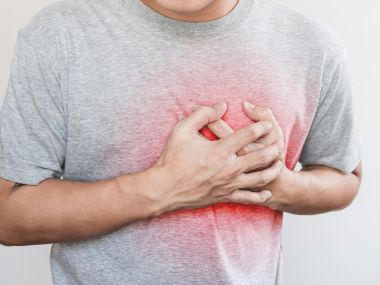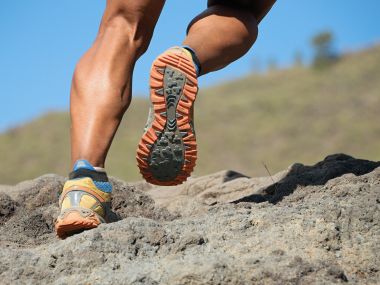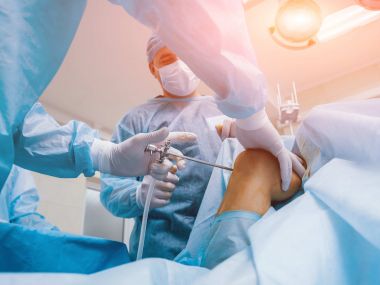Sports medicine is a medical specialty that deals with the theory and practical aspects of sports activity, training, lack of exercise and the prevention of sports injuries, but in a broader sense also with the diagnosis, therapy and rehabilitation of patients with sports injuries. Specialists in sports medicine examine the significance of physical activity for health and mental and physical fitness. Both competitive and recreational athletes are the focus of the sports medicine specialists.
The range of services offered by specialists in sports medicine includes diagnostic and therapeutic services as well as services in the field of rehabilitation and the consultation and analysis of athletes:
- Typical diseases and injuries of athletes that are examined and treated by a practicing physician for sports medicine or in a clinic for sports medicine are for example bone fractures, bruises and sprains, dislocations, strains, injuries of tendons, ligaments and muscles. Such sports injuries are often treated surgically in sports surgery.
- During a movement analysis at a clinic for sports medicine, the doctors for sports medicine use video-supported techniques to record movements, for example when running or cycling. In this way, a sports medicine doctor can optimise movement sequences, discover incorrect posture or movements and determine the causes of pain.
- Nutritional coaching at a clinic for sports medicine supports the athlete in achieving personal training goals. A diet tailored to the specific sport is essential to ensure that the body has the energy it needs for maximum performance and rapid regeneration in competition or training situations.
- In order to identify health risk factors and sport-related damage at an early stage, competitive athletes, but especially untrained recreational athletes, should undergo a health check (sports medical examination, sports check) in a clinic for sports medicine or by a doctor for sports medicine. In this way, dangerous cardiovascular diseases can be identified, treated and an individual training plan can be created.
- Performance diagnostics includes various sport-specific examinations and test procedures that provide the specialists for sports medicine with information about the current state of health, performance level and resilience of an athlete. It is a prerequisite for personal training advice and the adjustment of the training schedule.
- Lactate diagnostics is a part of performance diagnostics, in which the lactate content in the blood is determined as a measure for energy metabolism and energy supply. This can be particularly important for endurance athletes such as triathletes, cyclists and runners.
- Spiroergometry, with which the respiratory gases are determined, can also be part of performance diagnostics. It can be used to determine the energy metabolism and assess endurance performance.
- In sports surgery, acute injuries and chronic complaints of the locomotor system are treated conservatively and surgically. The range of services in sports surgery includes, for example, arthroscopic surgery, the use of ligament plasty in acute and reconstructive surgery of the shoulder, elbow, knee, hand and foot, surgical treatment of bone fractures and prosthetic joint replacement.
- Since the cardiovascular system of every athlete is exposed to increased stress, examinations in a practice or clinic for sports cardiology are of great importance. In addition to examinations of the cardiovascular system (e.g. long-term ECG, long-term blood pressure measurement, ultrasound examinations of the cervical arteries), sports cardiology often offers specific examination programs, such as the sports fitness examination, the sports medical examination or the marathon check.
There is currently no specialist training in sports medicine. Rather, specialists in sports medicine have obtained a specialist qualification in a field of direct patient care (e.g. cardiology, internal medicine, orthopedics, surgery) and then undergone additional training, which then entitles the graduate to bear the title of "additional qualification in sports medicine".
During this additional training, the prospective sports medicine physician was taught at least 240 hours in sports medicine from the fields of physiology, internal medicine, cardiology, surgery, orthopedics and traumatology. In addition, the future physician for sports medicine must have completed at least 120 hours of medical work in a sports club or similar institution. Alternatively, in order to obtain the "additional qualification in sports medicine", the doctors for sports medicine must have worked full-time for 12 months at a sports medicine institution, for example in a clinic for sports medicine. Frequently, the specialists for sports medicine work in the field of sports cardiology and sports surgery.








